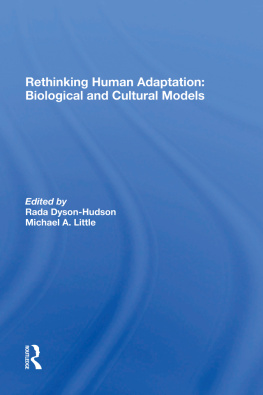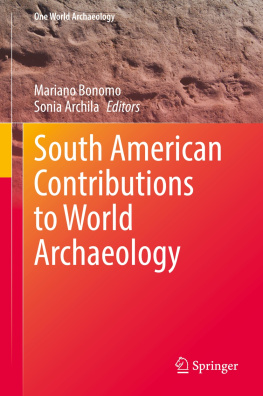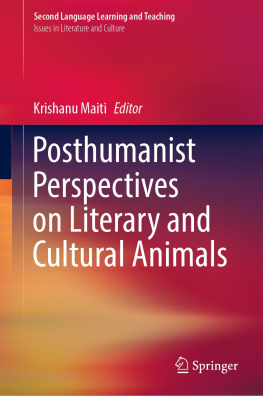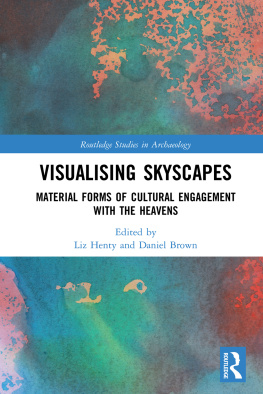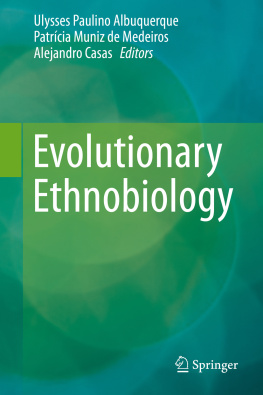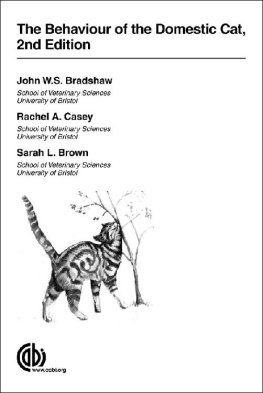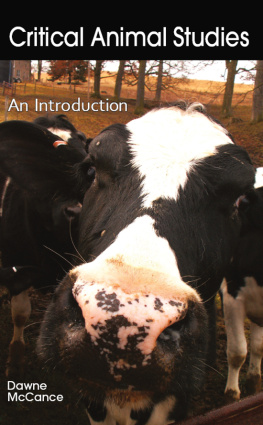ROUTLEDGE LIBRARY EDITIONS:
ARCHAEOLOGY
Volume 15
THE WALKING LARDER
First published in 1989
This edition first published in 2015
by Routledge
2 Park Square, Milton Park, Abingdon, Oxon, OX14 4RN
and by Routledge
711 Third Avenue, New York, NY 10017
Routledge is an imprint of the Taylor & Francis Group, an informa business
1989 Juliet Clutton-Brock and contributors
All rights reserved. No part of this book may be reprinted or reproduced or utilised in any form or by any electronic, mechanical, or other means, now known or hereafter invented, including photocopying and recording, or in any information storage or retrieval system, without permission in writing from the publishers.
Trademark notice: Product or corporate names may be trademarks or registered trademarks, and are used only for identification and explanation without intent to infringe.
British Library Cataloguing in Publication Data
A catalogue record for this book is available from the British Library
ISBN: 978-1-138-79971-4 (Set)
eISBN: 978-1-315-75194-8 (Set)
ISBN: 978-1-138-81599-5 (Volume 15)
eISBN: 978-1-315-74645-6 (Volume 15)
Publishers Note
The publisher has gone to great lengths to ensure the quality of this book but points out that some imperfections from the original may be apparent.
Disclaimer
The publisher has made every effort to trace copyright holders and would welcome correspondence from those they have been unable to trace.
Juliet CluttonBrock and contributors, 1989
This book is copyright under the Berne Convention. No reproduction
without permission. All rights reserved.
Published by the Academic Division of
Unwin Hyman Ltd
15/17 Broadwick Street, London W1V 1FP, UK
Unwin Hyman Inc.
8 Winchester Place, Winchester, Mass. 01890, USA
Allen & Unwin (Australia) Ltd
8 Napier Street, North Sydney, NSW 2060, Australia
Allen & Unwin (New Zealand) Ltd in association with the
Port Nicholson Press Ltd
60 Cambridge Terrace, Wellington, New Zealand
First published in 1989
Paperback edition 1990
British Library Cataloguing in Publication Data
The walking larder: patterns of domestication, pastoralism, and predation.
1. Animals. Relationships with humans
I. CluttonBrock, Juliet II. Series
591.6
ISBN 0044450133
ISBN 0044459009 pbk
Library of Congress Cataloging in Publication Data
The walking larder: patterns of domestication, pastoralism, and predation/edited by Juliet Clutton-Brock.
p. cm.
Chiefly proceedings of the World Archaeological Congress held in
Sept. 1986 in Southampton, England.
Bibliography: p.
Includes index.
ISBN 0044450133 (alk. paper)
ISBN 0044459009 (pbk)
I. DomesticationCongresses. 2. Human ecologyCongresses.
3. Animal remains (Archaeology)Congresses. I. CluttonBrock,
Juliet.
II. World Archaeological Congress (1986: Southampton, Hampshire)
636.009dcl9; ff06 03
Set in 10 on 11 point Bembo by Columns of Reading
Printed in Great Britain
at the University Press, Cambridge
Frontispiece (see ): Llama singing with the emperor (Poma de Ayala 1936, p. 318).
This book is one of a major series of more than 20 volumes resulting from the World Archaeological Congress held in Southampton, England, in September 1986. The series reflects the enormous academic impact of the Congress, which was attended by 850 people from more than 70 countries, and attracted many additional contributions from others who were unable to attend in person.
The One World Archaeology series is the result of a determined and highly successful attempt to bring together for the first time not only archaeologists and anthropologists from many different parts of the world, as well as academics from a host of contingent disciplines, but also nonacademics from a wide range of cultural backgrounds, who could lend their own expertise to the discussions at the Congress. Many of the latter, accustomed to being treated as the subjects of archaeological and anthropological observation, had never before been admitted as equal participants in the discussion of their own (cultural) past or present, with their own particularly vital contribution to make towards global, cross-cultural understanding.
The Congress therefore really addressed world archaeology in its widest sense. Central to a world archaeological approach is the investigation not only of how people lived in the past but also of how, and why, changes took place resulting in the forms of society and culture which exist today. Contrary to popular belief, and the archaeology of some 20 years ago, world archaeology is much more than the mere recording of specific historical events, embracing as it does the study of social and cultural change in its entirety. All the books in the One World Archaeology series are the result of meetings and discussions which took place within a context that encouraged a feeling of self-criticism and humility in the participants about their own interpretations and concepts of the past. Many participants experienced a new self-awareness, as well as a degree of awe about past and present human endeavours, all of which is reflected in this unique series.
The Congress, was organized around major themes. Several of these themes were based on the discussion of full-length papers which had been circulated some months previously to all who had indicated a special interest in them. Other sessions, including some dealing with areas of specialization defined by period or geographical region, were based on oral addresses, or a combination of precirculated papers and lectures. In all cases, the entire sessions were recorded on cassette, and all contributors were presented with the recordings of the discussion of their papers. A major part of the thinking behind the Congress was that a meeting of many hundreds of participants that did not leave behind a published record of its academic discussions would be little more than an exercise in tourism.
Thus, from the very beginning of the detailed planning for the World Archaeological Congress in 1982, the intention was to produce post-Congress books containing a selection only of the contributions, revised in the light of discussions during the sessions themselves as well as during subsequent consultations with the academic editors appointed for each book. From the outset, contributors to the Congress knew that if their papers were selected for publication, they would have only a few months to revise them according to editorial specifications, and that they would become authors in an important academic volume scheduled to appear within a reasonable period following the Southampton meeting.
The publication of the series reflects the intense planning which took place before the Congress. Not only were all contributors aware of the subsequent production schedules, but also session organizers were already planning their books before and during the Congress. The editors were entitled to commission additional chapters for their books when they felt that there were significant gaps in the coverage of a topic during the Congress, or where discussion at the Congress indicated a need for additional contributions.


